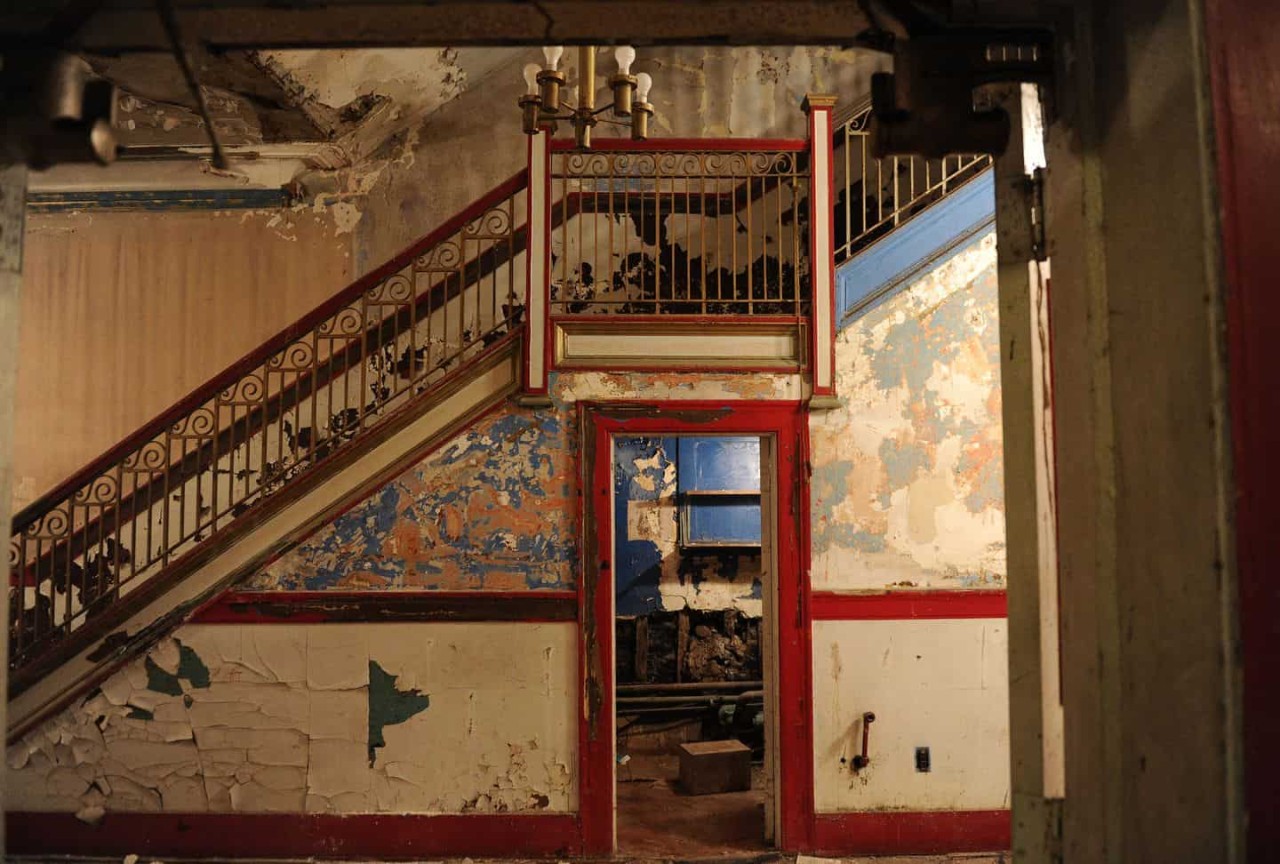
The Everett Square Theatre in 2011. THE BOSTON GLOBE
At the end of the spring semester, a team of students in Senior Lecturer Edward Chazen’s Field Projects in Real Estate course didn’t just receive a grade for their chosen development project. They drew headlines in the Boston Globe and other local outlets. The media attention began almost as soon as the students began working on their bold plan to renovate the long-shuttered Everett Square Theater in Boston’s Hyde Park section.
“BC Students Look to Revitalize Historic Hyde Park Theater,” read the Globe headline on January 27. “BC Restoration Could Revive Everett Square Theater,” announced the Hyde Park edition of the The Bulletin Newspapers, which ran no fewer than three articles this past spring on the five-member student team. The movie-goer guide Cinema Treasures and other sites reported on the team’s progress as well.
Launched in the spring of last year and profiled in Boston College Magazine, Field Projects in Real Estate sends teams of students into Boston-area communities to create development plans on behalf of real clients. “It gets them out of their comfort zones,” said Chazen, explaining that the teams work with experts and stakeholders they wouldn’t normally encounter on campus.
The class is part of the curriculum offered by the Carroll School’s Joseph E. Corcoran Center for Real Estate and Urban Action.
The spring 2017 course included two other groups working on their own semester-long projects. One team prepared a comprehensive plan to develop surplus property next to the Church of the Holy Spirit in Boston’s Mattapan section on behalf of the congregation. The other one spearheaded a project to redevelop shops and pedestrian areas on two streets of the city’s Downtown Crossing neighborhood together with its client, the Downtown Boston Business Improvement District.
A THEATER FOR THE NETFLIX GENERATION
On May 3 in Fulton, the Everett Square group conducted a dress rehearsal of its final presentation that would take place a week later in Hyde Park. “Our client is passionate about bringing the arts to Hyde Park, so we really want to make this come true,” said Jacqueline DaTorre ’17, referring to the owner of the property, longtime Hyde Park resident Patricia Tierney. The building needs a full restoration.
Other members of the team included two more Carroll School students—Aaron Horne ’17 and Michael Lane ’18—as well as Connor Maguire ’17 and Kelsey Tague ’18, both from the Morrissey College of Arts and Sciences.
Dressed in business attire and armed with dozens of PowerPoint slides including photos of the dilapidated interior, the students rehearsed the entire presentation. Among other highlights, they discussed research methodology, which included interviews with directors of other revitalized community theaters in the region, and financing, which would involve several sources, notably $4.1 million in state and federal tax credits for historical landmark status. They even prepared a calendar of possible events along with potential revenue from different groups of arts patrons.
The idea is that the theater would become a nonprofit organization, presenting popular though out-of-circulation movies and live productions. It would also rent out much-needed rehearsal space to community arts groups including theater and dance troupes.
Although the original interior had 700 seats, the team’s proposal cut that number down to 450. “People don’t want to go to a theater where they’ll be cramped for legroom in the age of Netflix when they can watch movies relaxing in their living rooms,” Lane told a group of 25 people, mostly students and faculty, who turned out for the rehearsal.
A $10.2 MILLION PLAN
Among those present was Carroll School graduate William Weber ’96, principal—along with his brother Michael ’02, also a Carroll School alum—of the prominent New England electrical contracting firm Gaston Electrical. During a Q&A after the formal presentation, he said the students were on safe ground with their estimates of the costs of renovation. “I think the numbers you’re using are fairly conservative,” said Weber, who heard about the project after reading the first Boston Globe article and reached out to professor and students with help and advice.
Afterward, Weber said: “If they had a class like this when I was here, I would have definitely taken it.”
On May 11, the students unveiled a $10.2 million plan to restore the Everett Square Theater. In a Hyde Park public library, they delivered their 54-page presentation to Tierney and a handful of community leaders along with their professor. The Boston Globe followed up with a May 22 article that cited the next steps mapped out by the students, who are done with the project. These would include registering the theater as a historic landmark and assembling a development team.
“The Everett Square Theater went from dead in the water to a great hope in five months because of their work and belief in the possibility,” Boston City Councilor Timothy McCarthy, who worked closely with the students, said in a statement prepared for the Globe. “Now the real work begins.”


